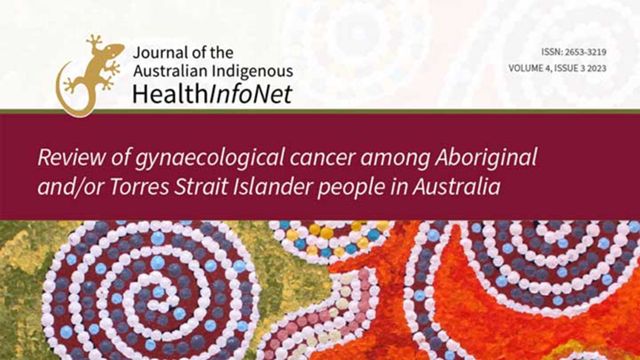Gynaecological cancers bear a significant burden on the health of Australians. While Australia has made great strides in reducing the overall gynaecological cancer burden nationally, Aboriginal and/or Torres Strait Islander women continue to experience disproportionately high rates of gynaecological cancers.
This review focuses on the social, cultural, and historical contexts that contribute to inequitable gynaecological cancer rates among Aboriginal and/or Torres Strait Islander women. An in-depth discussion on cervical cancer, ovarian cancer and uterine cancer are described; including the incidence, mortality, survival and management of these diseases for Aboriginal and/or Torres Strait Islander women.
It highlights both the persistent barriers and facilitators relating to Aboriginal and/or Torres Strait Islander women’s uptake of preventative measures and treatments, including their use of services and programs relating to the management of gynaecological cancers.
This review summarises past and current policies and strategies implemented by the Australian Government and other cancer related peak bodies that aim to address this health issue.
It recommends that critical attention be given to risk reduction, participation in cancer screening programs, and improved access to culturally appropriate, high quality primary health care and tertiary specialist services. This would address inequitable differences faced by Aboriginal and/or Torres Strait Islander people and reduce the overall burden of gynaecological cancers.
Enquire about this resource on Australian Indigenous HealthInfoNet


 New
New 


